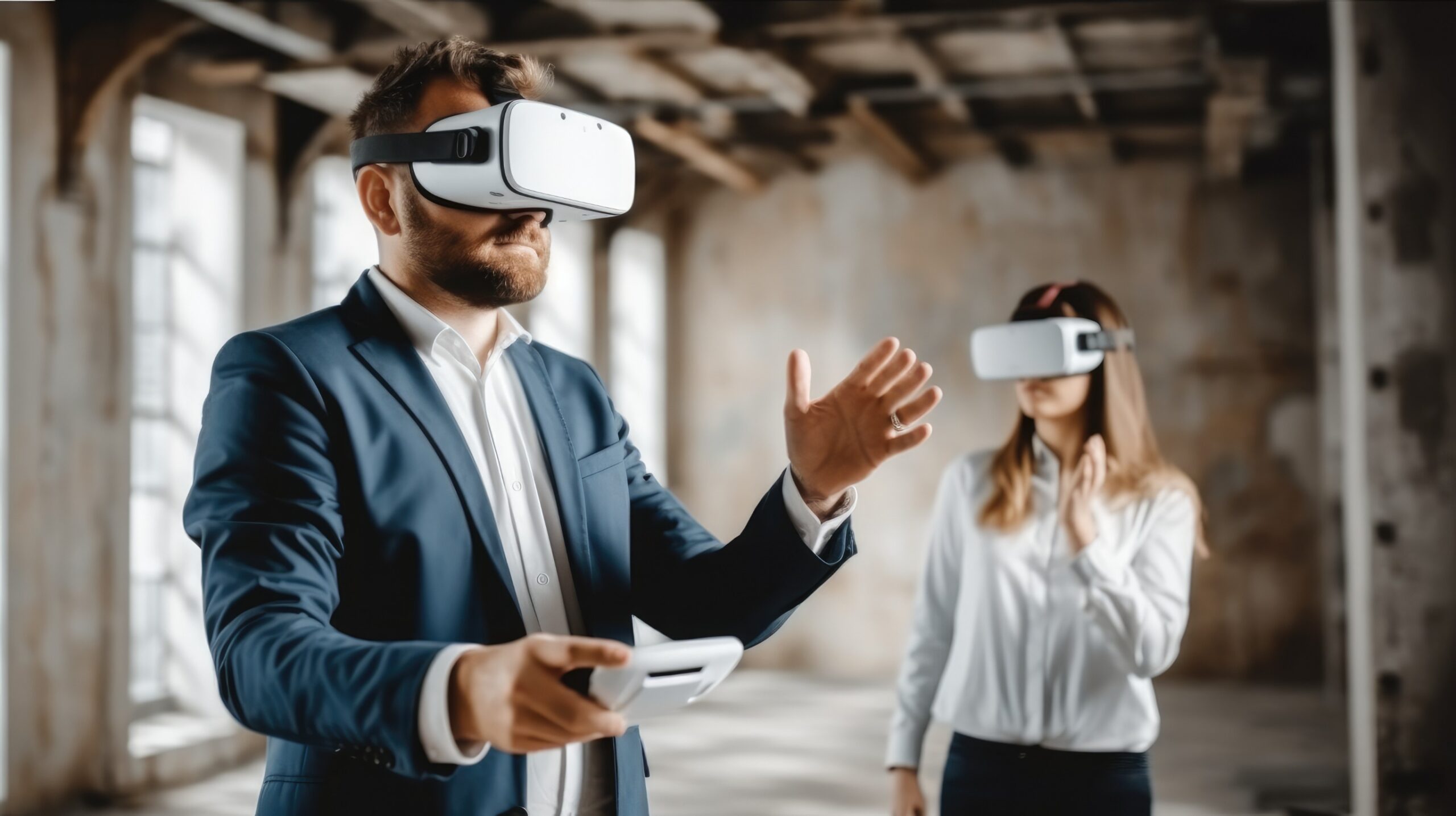
Table of Contents
ToggleJobs of the Future: How Augmented and Virtual Reality Is Playing a Key Role
The wave of technological advancement has been relentless, and with it comes the necessity to evolve our educational offerings. Among the many breakthroughs, Augmented Reality (AR) and Virtual Reality (VR) stand out as technologies poised to redefine many sectors. As we design the course offerings for our students, informing them of AR and VR career possibilities becomes not just a recommendation, but an imperative.
At Pointful Education, we broke new ground in 2018 by launching the first high school course dedicated to allowing students to explore the careers and industries affected by Virtual Reality. With the recent release of Apple’s Vision Pro and Meta’s latest VR systems, our curriculum team took the opportunity to revamp and update that course in summer 2023 to reflect the most innovative aspects that the technology has to offer.
AR/VR: More Than Just Gaming
While AR and VR are commonly associated with entertainment and gaming (which are large and growing sectors), they have broad implications across numerous industries:
- Healthcare: Surgeons use AR to overlay digital data, like MRI images, directly onto their patient during procedures. VR is employed in patient rehabilitation and therapy.
- Real Estate & Architecture: Clients can take virtual tours of properties or see the potential of an undeveloped space through VR.
- Education: Immersive VR field trips, AR textbooks, and interactive learning become possible, changing the face of education.
- Retail: Shoppers can try on clothes virtually or see how furniture might look in a home through AR.
Transferable Skills for the Future
Incorporating AR and VR into curriculum offerings equips students with a myriad of skills that are valuable in the 21st-century job market:
- Technical Proficiency: As digital tools become ubiquitous, fluency in tech-related fields is increasingly valued.
- Problem-Solving and Creativity: Designing and implementing AR/VR solutions require innovative thinking.
- Interdisciplinary Learning: AR/VR merges tech with other fields, from art to science to business, teaching students to integrate knowledge across subjects.
Differentiating in a Competitive Job Market
With AR and VR knowledge under their belts, students can:
- Showcase modern Skill Sets: A familiarity with AR and VR showcases forward-thinking and adaptability, which are traits employers cherish.
- Fill Emerging Job Roles: As industries adopt AR and VR, new roles emerge: AR/VR developer, UX/UI designer for immersive experiences, AR/VR content creator, and many others that don’t even exist today!
- Enhance Traditional Roles: Even conventional roles—like teaching, marketing, or project management—can benefit from AR/VR integration.
Lifelong Learning and Adaptability
It’s not just about the hard skills. Exposure to cutting-edge technologies like AR and VR fosters a culture of continuous learning and adaptability. In a world where the nature of jobs is perpetually evolving, this mindset is invaluable.
By teaching students about the latest AR and VR technologies; we’re equipping them with the vision, skills, and adaptability to thrive in tomorrow’s job market. Our students are the innovators of the future, and it’s our duty to ensure they’re prepared for the opportunities and challenges that await.
Check out our Pointful Education blog today to learn more about the best strategies to prepare your students for high school, college, and beyond.
